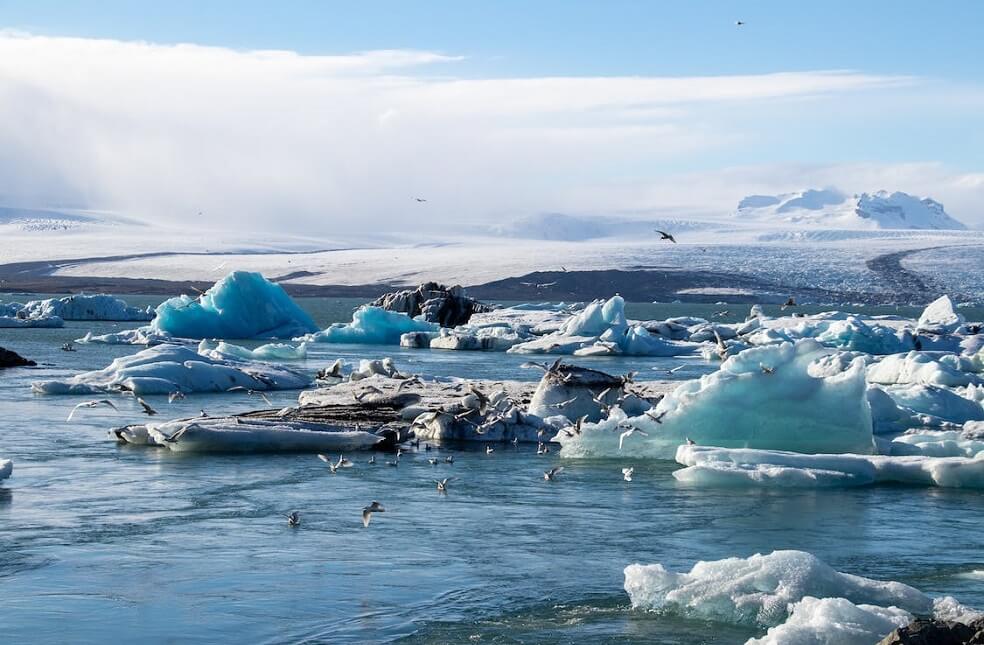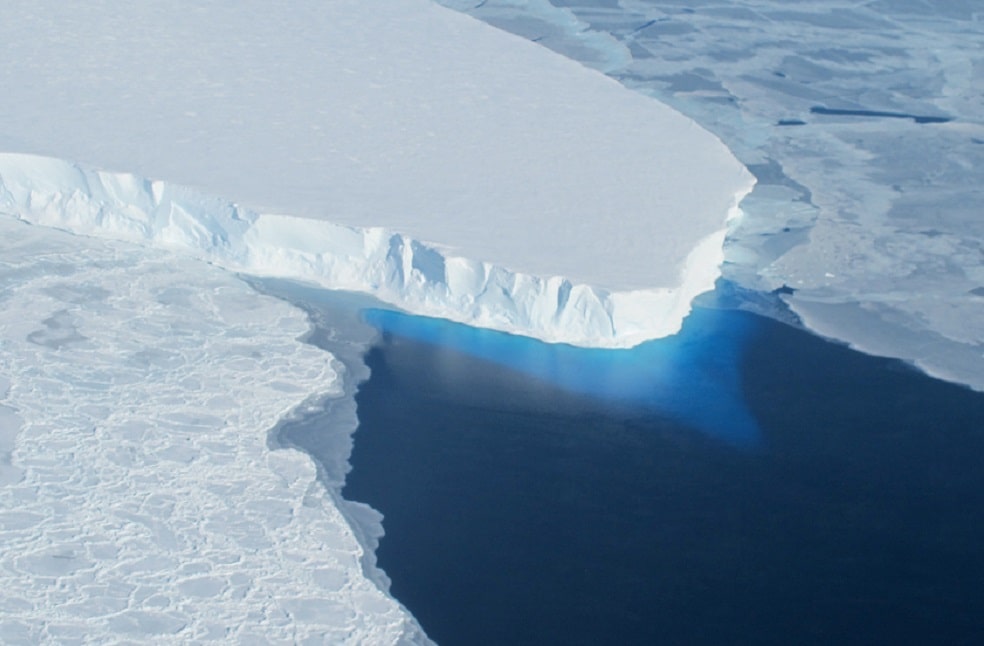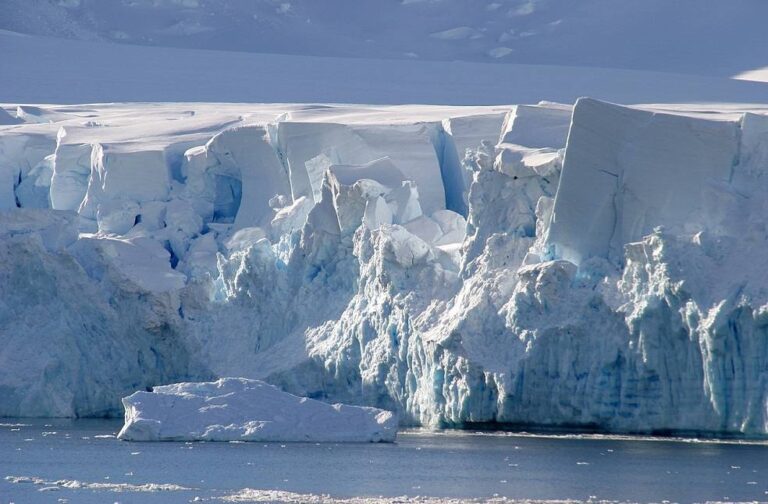Antarctica: A new report has found that the ice shelves in Antarctica have shrunk by more than 40 percent since 1997, and almost half show “no sign of recovery.”
Scientists from the University of Leeds have concluded that 67 trillion tonnes of ice were lost in the west and 59 trillion tonnes were added to the east between 1997 and 2021. As a result, a net total of 7.5 trillion tonnes have been lost in this period.
According to the findings published in the journal Scientific Advances, the ice loss is a result of the climate crisis because there would be more ice regrowing if the loss was part of a natural cycle.

On the western side of Antarctica, warm water causes the melting of ice, whereas in the east, ice shelves have either stayed the same or grown since the water is colder there. When ice shelves shrink, glaciers release larger amounts of freshwater into the sea, which can affect the currents in the Southern Ocean.
Dr. Benjamin Davison, an expert in Earth observation and the study’s lead, observed that “there is a mixed picture of ice shelf deterioration, and this is to do with the ocean temperature and ocean currents around Antarctica. The western half is exposed to warm water, which can rapidly erode the ice shelves from below, whereas much of east Antarctica is currently protected from nearby warm water by a band of cold water at the coast.”
The research team measured annual variations in the ice using satellites that can see through the thick clouds during long polar nights. Researchers looked at more than 100,000 images taken from space to analyse the loss.

The estimated 67 million tonnes of freshwater released into the ocean over the 25-year period affects the ocean currents that transport heat and nutrients around the world.
“We expected most ice shelves to go through cycles of rapid but short-lived shrinking, then to regrow slowly. Instead, we see that almost half of them are shrinking with no sign of recovery,” Mr. Davison noted.
Earlier, a study found that Antarctica was likely to be warming at almost twice the rate of the rest of the world and faster than climate crisis models were predicting. French scientists studied 78 ice samples from Antarctica to figure out temperatures from the past 1,000 years and concluded that the warming happening across the continent was not due to natural variations.



